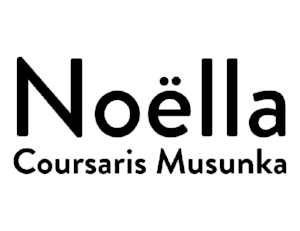Noëlla is interviewed by Hearst
Hearst Empowering Women recently interviewed Noella about her work with Malaika. You can read the full article on Hearst or read an extract below.
"I was born in the Democratic Republic of Congo. My dad died when I was five and my mum didn’t have any money to keep me, so I grew up with family in Belgium and Switzerland. I went to see my mum after 13 years and she was extremely poor, so I promised myself I would try to help her and give something back to my country.
We started with small projects but wanted to make a bigger impact. We built the Malaika school so that we could really track the girls and shape the curriculum.
I went to visit lots of schools in Africa and many of them are so basic. They’re good, but I wanted to build something where I would send my own child. There is nothing in the village, villagers are sleeping in small rooms with eight to ten people and they don’t have food most of the time, so they need to look forward to going somewhere and saying: “this school’s going to help me to become somebody”.
Since we built the school at this level, a lot of foundations have come to us and said “Now we have no choice, we have to make better schools” and the quality of school buildings in D R Congo is now better. Currently there are 231 girls at the school. We select students by a lottery every year. When twins applied but only one was chosen, we took them both. Everybody asks why there’s 231 students instead of 230, and it’s because we couldn’t split up twins!
The girls start aged five and they’re at the school until they’re eighteen. When I go there to visit it’s great because I’ve known some of the girls since they were five years old and they’re growing. They’re very grateful and their mums come in too.
At the beginning of setting up a school there are a lot of things you have to teach. We had to teach the girls to eat with a knife and fork and brush their teeth, and they’d never used a real toilet. We do health check-ups twice a year too. We try to do a lot of school activities in the holidays because we noticed that they don’t eat otherwise. When they come back in September they are so skinny. This summer we had a photographer come in to teach them to take pictures. We also teach them to recycle and to plant trees. We have a community centre, so we teach the parents to read and write in French and Swahili. We teach maths, sewing classes, entrepreneurship, how to tackle malaria and HIV -and everything is free.
Every girl has a different story. Two of the girls lost their mum and dad so we needed to find someone to take care of them, and we’re paying something every month to the family for their food and so they can go to school. One of the girls broke her leg and her family didn’t have the money to go to the hospital. Noticing she was absent for a number of days, I said: “Ok, we have to check why she’s not coming”. She was in such a bad state that we brought her to the hospital. If she had arrived two days later she would have died because she had lost so much blood, it was crazy.
We don’t raise money with sad pictures. For me, dignity is very important. Every day we read news about Africa and it’s negative. I would raise more money using sad pictures, but at least we’re raising money in a different way.
I cannot be involved at this level without knowing what’s happening. I know when a girl’s sick, and I know when a teacher is sick. I want to know everything, it’s my baby and when I wake up in the morning, I want to know if everything’s ok at school, and with Whatsapp it’s easy. I go to the school twice a year. I have meetings with the parents, the staff, local donors and the government. I’m not linked to the government but it’s important to say thank you to the minister of education, because every year he has to sign a paper that says ‘recognised school’. I have long days, I start at 7am and finish at 11pm and when I’m there I work every day on the school, on everything happening in the village, and the vision for the following year. It’s non-stop!
The school is part of me. Every day is difficult, we have to raise money and we have challenges. For months the road to our school was very bad and we had to repair cars and push the government to re-do the road. You go through a lot of emotions.
I have two kids, and this really is my third baby. It’s my country, so I put a lot of time and passion into it. Some people go from one country to another one, and another one, but this is my home. If I’m not there they can knock on my mum’s door and say: “Where’s your daughter?”


